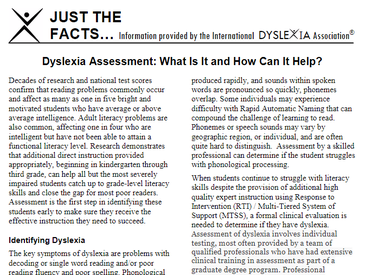Understanding Dyslexia
Dyslexia is a learning difference with neurobiological roots. Due to differences in how the brain processes information, people with dyslexia experience difficulty with the written language, whether in reading, spelling, and/or writing, and often as well with hearing smaller parts of words.
What dyslexia is not:
What dyslexia is not:
- Dyslexia is not a cognitive impairment. Many brilliant, successful people have been diagnosed with dyslexia. Dyslexia and intelligence level are not related.
- Dyslexia is not laziness. Students with dyslexia may experience frustration academically and shut down, leading to behavioral issues. Students with dyslexia often work much harder than others to compensate for their learning difference.
- Dyslexia is not "curable." However, people with dyslexia can learn to read and function successfully academically, professionally, and personally.
- Dyslexia is not caused by visual impairment.
- Dyslexia is not a "boy" condition. Girls are just as likely to have dyslexia.
Click on the images below to learn more about dyslexia, or visit the International Dyslexia Association website for all the fact sheets.

